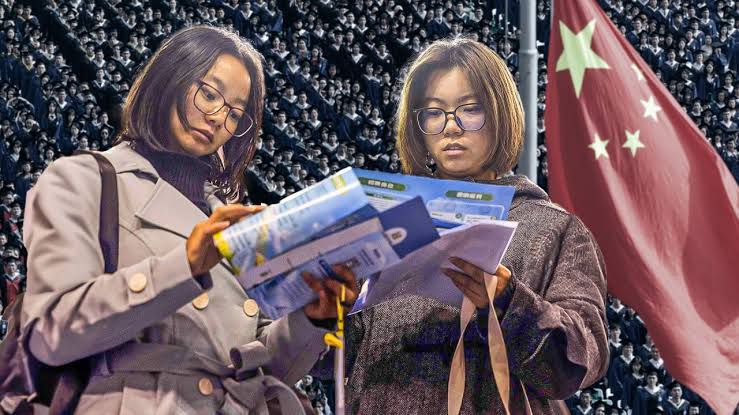Chinese Students Decry U.S. Visa Ban as Discriminatory
Chinese students across the United States are facing growing uncertainty after U.S. Secretary of State Marco Rubio announced Wednesday that Washington will revoke visas for some Chinese nationals, particularly those in “critical fields” or with perceived ties to the Chinese Communist Party.
The move has prompted panic among Chinese students, with many comparing it to the 19th-century Chinese Exclusion Act. “This feels like a modern version of the Chinese Exclusion Act,” said Linqin, a student at Johns Hopkins University who has lived in the U.S. for nearly a decade. Fearing retaliation, he asked to be identified only by his first name.
China is the second-largest source of international students in the U.S., behind India. During the 2023–2024 academic year, over 270,000 Chinese students studied in America, accounting for roughly a quarter of all foreign students.
Beijing swiftly condemned the decision. “Such a politicized and discriminatory action exposes the U.S. lie about upholding freedom and openness,” said Chinese Foreign Ministry spokesperson Mao Ning, adding that China has formally lodged a protest with Washington.
The U.S. has previously tightened student visa policies for Chinese nationals. In 2019, during President Trump’s first term, China’s Ministry of Education warned about increased visa denials and shortened validity periods. More recently, Beijing accused U.S. border officials of unfairly interrogating and deporting Chinese students upon arrival.
This latest visa crackdown adds to rising anxieties and is already influencing student decisions. Zou Renge, a 27-year-old public policy graduate student at the University of Chicago, said she planned to take time off after graduation but is now hesitant to leave the country. “In a very uncertain environment, I’ll try my best to find myself a solution,” she said.
Some regions are already seizing the moment. In Hong Kong, Chief Executive John Lee told lawmakers the city would welcome students facing U.S. discrimination. “This is an opportunity for Hong Kong,” he said, encouraging universities to provide support to affected students.
The Hong Kong University of Science and Technology also offered assistance to international students looking to transfer, after President Trump threatened to revoke Harvard University’s authorization to accept students from abroad.
Hong Kong, known for its international education and relative freedoms, has become a preferred destination for mainland students, especially following its 2022 visa scheme aimed at countering the loss of talent during COVID-19 and Beijing’s national security clampdown.
Education consultants in the region confirm a shift. Kitty Wu of Litz USA Student Service said more students are now seriously considering local options like the University of Hong Kong. “That’s a big change,” she noted.
Will Kwong of AAS Education Consultancy said his firm is helping students with existing U.S. offers explore alternatives in the U.K. and Australia. “We’re acting quickly,” he said, citing reports that the U.S. State Department has halted new visa interviews for international students.
Experts warn that reduced academic exchange could hurt the U.S. in the long run. “Having fewer international exchanges is not good for America’s development,” said Zhang Qi, a postdoctoral fellow in Beijing. “This could actually boost China’s tech sector by keeping more talent at home.”
Back in China, students awaiting visas are growing anxious. Chen, an incoming student at Purdue University, said he expected America to stand for freedom and inclusion. “It’s a pity to see this change,” he said.
As students await clarity, many are bracing for an uncertain academic future in a country they once hoped to call a second home.



[…] public broadcaster RTS reported that the collapse of the Birch Glacier unleashed a powerful avalanche of ice, rocks, and mud that engulfed large portions of the alpine […]